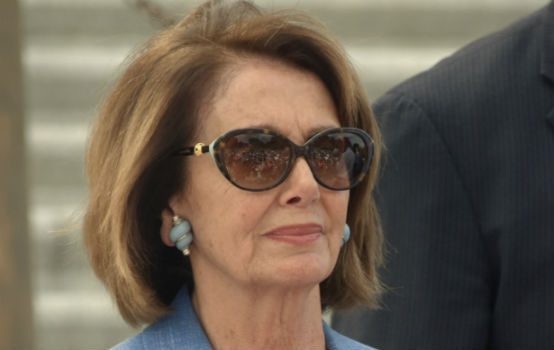After Mueller, Can Pelosi Hold the Line on Impeachment?

Special counsel Robert Mueller’s report on the Russia investigation is finally out and here’s the bottom line: he found no conspiracy between the Kremlin and Donald Trump’s campaign to fix the 2016 presidential election.
That’s good news for the president and the country. But it may only be the beginning of a new dilemma for House Speaker Nancy Pelosi.
Even in redacted form, the Mueller report is chock full of information that portrays Trump and some members of his team in an unfavorable light. We knew from Attorney General William Barr’s summary that Mueller would not take a firm position on whether the president obstructed justice. But the special counsel laid it on much thicker than the Barr letter implied.
“Wrongdoing is more likely to involve the ways in which the president behaved, used his power, expressed himself, and dealt with underlings and with law enforcement in response to the investigation of Russia’s interference in our election and of his campaign’s involvement in any such interference,” Yuval Levin predicted. “We probably already know most of what the special counsel discovered about these things, but not all—and in any case having it all laid out in one place may mean it adds up in ways that will be striking.”
Striking it was. “I’m fucked,” Trump is quoted in the report as saying in response to Mueller’s appointment. The president is portrayed as trying to get the special counsel fired, attempting to bully then-attorney general Jeff Sessions into ending his recusal, and encouraging then-White House counsel Don McGahn to do “crazy shit” to influence the probe.
There is exculpatory material as well. A few lines down from Trump saying the special counsel would effectively end his presidency, it becomes clear that he is at least partially referring to the impact the investigation would have on his ability to discharge the duties of his office—not necessarily the fear that it will expose criminal wrongdoing.
Barr emphasized this in absolving Trump of obstruction. The attorney general also took issue with Mueller’s view that Trump could potentially obstruct justice by exercising his legal powers in ways that could alter the direction of the investigation. But the biggest discrepancies between Barr and Mueller concerned their characterizations of the obstruction question. Mueller, at least, left House Democrats an impeachment trail to follow if they are so inclined.
“[W]e concluded that Congress has the authority to prohibit a president’s corrupt use of his authority in order to protect the integrity of the administration of justice,” the report states. It’s a not too thinly veiled reminder to lawmakers that Barr doesn’t have the final word.
Mueller even prefaced his finding that the evidence “did not establish that members of the Trump Campaign conspired or coordinated with the Russian government in its election interference efforts” with assertions “that the Russian government perceived it would benefit from a Trump presidency” and that team Trump “expected it would benefit electorally from information stolen and released through Russian efforts.”
For many Democrats, that is the whole point and one of the reasons the congressional committees conducting similar investigations have split on the collusion question down party lines.
Now there may also be a breakdown along generational lines. “Mueller’s report is clear in pointing to Congress’ responsibility in investigating obstruction of justice by the president,” tweeted Congresswoman Alexandria Ocasio-Cortez, as she announced her support for a fellow freshman Democrat’s impeachment initiative.
Leadership views the matter differently. “Based on what we have seen to date, going forward on impeachment is not worthwhile at this point,” House Majority Leader Steny Hoyer told CNN. “Very frankly, there is an election in 18 months and the American people will make a judgement.”
“I’m not for impeachment,” Pelosi said last month. And while she was speaking before the details of Mueller’s investigation were known, her rationale was that impeachment wasn’t a worthwhile endeavor unless there was a bipartisan consensus.
Nothing Mueller reported has changed that. If anything, the no collusion bottom line has renewed Republican questions about the origins of the Trump-Russia investigation. It has all but certainly made it less likely that pro-impeachment Democrats can obtain a Senate conviction.
But Mueller did turn up enough dirt to enrage progressives who were expecting this investigation to end Trump’s presidency. Pelosi and Hoyer were in Washington when Republicans failed in a party-line attempt to impeach Bill Clinton. They would rather fight the 2020 election than re-litigate 2016.
Pelosi won this fight when she tamped down efforts by her caucus’s left flank to impeach George W. Bush over the Iraq war. Within less than two years, Barack Obama was elected president. But AOC is no Dennis Kucinich, no report about the Iraq failures has received as much attention as Mueller’s, and senior Democrats were implicated in the war.
This time, Pelosi has her work cut out for her.
W. James Antle III is editor of The American Conservative.
Comments